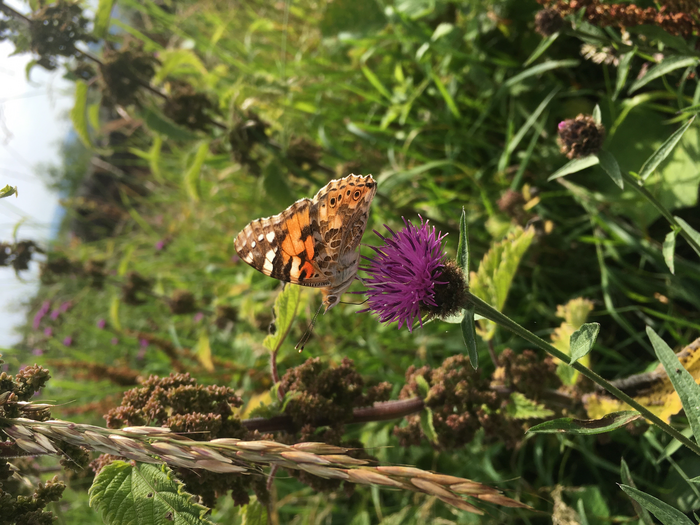We need to stop thinking of insects as creepy crawlies and focus on the huge benefits they bring to people and the natural environment, scientists say.

Credit: Dr Philip Donkersley
We need to stop thinking of insects as creepy crawlies and focus on the huge benefits they bring to people and the natural environment, scientists say.
The widespread and deeply engrained cultural perception of insects as creepy crawlies is a key factor holding back the public’s appreciation of the role they play within ecosystems. This perception is in part reflected in government biodiversity policy inaction across the globe, they argue.
This point is among a range of actions highlighted as part of a new paper published in Ecology and Evolution produced by an international team of entomologists which outlines a ‘battle plan’ including steps needed to prevent further insect losses across the globe.
Led by Dr Philip Donkersley of Lancaster University and co-authored by scientists from the University of Hong Kong, the Czech Academy of Sciences and Harper Adams University, the paper is a call to action targeted at other entomologists to step up advocacy for insects.
Despite 30 years of intergovernmental reports highlighting biodiversity targets, global insect abundance, biomass and diversity continues to decline. The paper considers the lack of progress in protecting insects and why meaningful change has not happened.
“Biodiversity, including insect, declines are often unintended consequences of human activities with human wellbeing nearly always trumping nature conservation, and this is likely to continue until we reach a point where we see flat-lining ecosystems are detrimental to our own species,” said Dr Donkersley. “Intergovernmental action has been slow to respond, kicking in only when change becomes impossible to ignore. If we are to see political attitudes and actions change then first societies’ perception of insects needs to be addressed.”
The paper highlights the range of benefits that insects bring, including some that are lesser known. These benefits include fundamental roles within ecosystems through interactions with plants including as pollinators, as a food for other animals, and as a food source for people in many parts of the world. Other benefits the authors highlight include insects’ contributions to wellbeing, culture and innovation, such as the benefits people derive from seeing butterflies in parks and gardens, their inclusion in poetry and literature, and their inspiration for a range of technologies, cosmetics and pharmaceuticals.
The researchers have outlined strategic priorities in their action plan to help support the conservation of insects. These include:
- to proactively and publicly address government inaction
- highlighting the technological developments we owe to the insects, and that there is a lot still to be discovered
- aligning with bird, plant and mammal conservation groups to show species interdependencies and knock-on benefits insect conservation has for other animals
- Engage public and school students with the wonders of the insect world to counter perceptions of insects as threatening ‘creepy crawlies’
“The benefits we gain from the insect world are broad, yet aversion of phobias of invertebrates are common and stand firmly in the path of their conservation,” said Dr Donkersley. “We need to move beyond this mindset and appreciate the huge role they play in ecosystems, foodchains, mental health, and even technological innovation.
“This perception change is a crucial step, alongside other measures we outline in this paper. Immediate and substantial actions are needed to protect insect species in order to maintain global ecosystem stability.”
The steps are outlined in the paper ‘Global insect decline is the result of wilful political failure: A battle plan for entomology’.
Authors on the paper are Dr Philip Donkersley, Lancaster University, Dr Louise Ashton, University of Hong Kong, Dr Greg Lamarre, Czech Academy of Sciences, and Dr Simon Segar, Harper Adams University.
Journal
Ecology and Evolution
DOI
10.1002/ece3.9417
Method of Research
Commentary/editorial
Subject of Research
Not applicable
Article Title
Global insect decline is the result of wilful political failure: A battle plan for entomology
Article Publication Date
12-Oct-2022




